The podcast is presented by Gareth Mitchell, a lecturer on Imperial's MSc Science Communication course. He’s also a longstanding BBC presenter and reporter. Gareth is joined each month by our roving reporters in the Communications Division.
If you have feedback that you'd like to share or ideas for future editions, we'd love to hear from you; please contact Gareth Mitchell.
You can also find the podcasts on most major platforms, including YouTube, Apple Podcasts, Stitcher and Spotify.
Check out other podcasts produced across the College in our podcast directory.
Podcasts 2012
- 12 December edition
- 21 November edition
- 31 October edition
- 10 October edition
- 12 September edition
- 22 August edition
- 1 August edition
- 11 July edition
- 20 June edition
- 30 May edition
- 9 May edition
- 18 April edition
- 21 March edition
- 29 February edition
- 8 February edition
- 18 January edition
In this edition: Sir Gordon Conway discusses how to feed the world and Vin Chauhan explains what skeletons tell us about Victorian Britain.
Listen to the complete streamed podcast - 12 December 2012
Imperial College Podcast 12 December 2012
Or listen to individual chapters
- News - Scientists develop a formula for predicting childhood obesity and a researcher prepares to unearth a squadron of Spitfires that were buried in Burma during the second world war.
- One Billion Hungry - Sir Gordon Conway explains his strategy for feeding the world’s growing population, as outlined in his new book.
- Close to the bone - Skeletal specimens from Imperial’s Pathology Museum tell stories of Victorian Britain, explains Vin Chauhan at our recent Fringe event.
In this edition, expert reflection on Superstorm Sandy from a professor of atmospheric physics, and students from Imperial’s Canoe Club report on their three-month expedition in Peru.
Imperial College Podcast 21 November 2012
Listen to the complete streamed podcast - 21 November 2012
Or listen to individual chapters
- News - The life-saving role of heart attack centres is confirmed in a new study and a plaque is unveiled to commemorate Nobel laureate George Porter.
- Dinosaur diversity - Junior Research Fellow Susannah Maidment explains how the geographical distribution of fossils from the Jurassic period could offer clues about how biodiversity will vary around the world in the future.
- Superstorm in a teacup? - Professor Jo Haigh discusses whether the immense force of Hurricane Sandy could be a sign of more extreme weather to come.
- Without a paddle - Students from Imperial’s Canoe Club report on their three-month summer expedition in Peru.
In this edition, Imperial’s new series of public events kicks off with terrifying consequences for cats, and two of our experts explain how the winners of this year’s chemistry and physics Nobels earned their prizes.
Listen to the complete streamed podcast - 31 October 2012 (To download, right click and select "save as".)
Or listen to individual chapters
- News – A study finds a startling rise in the number of children admitted to hospital with throat infections, and Imperial affirms its support for openness on the subject of animal research.
- Nobel prizes – Bernadette Byrne and Ed Hinds highlight the achievements that won this year’s chemistry and physics prizes for researchers in their fields.
- Commemoration Day 2012 – Students attending their graduation ceremonies offer advice to those beginning their undergraduate degrees.
- Fright night – How a 19th century researcher’s curiosity killed several unfortunate cats, and other tales from the Imperial Fringe event exploring the science of our fears.
In this edition, we meet an MBA student whose software package brings webpages to life using audio, and find out what researchers have learned about preventing non-communicable diseases.
Listen to the complete streamed podcast - 10 October 2012 (To download, right click and select "save as".)
Or listen to individual chapters
- News - The Imperial team who shine a light on protein structure, a brain imaging study that brought drug science to primetime TV, and the potential benefits for public health from free bus passes for the elderly.
- How to prevent chronic diseases - Professor Majid Ezzati discusses what public health research tells us about preventing non-communicable diseases.
- Letting the internet speak to all - MBA student Akshay Jha explains his prize-winning business plan for a software package that helps blind and visually impaired people surf the web.
- Science communication is 21 - As Imperial’s masters course comes of age, Gareth Mitchell, Kerry Noble and Sam Wong discuss how the field of science communication has developed.
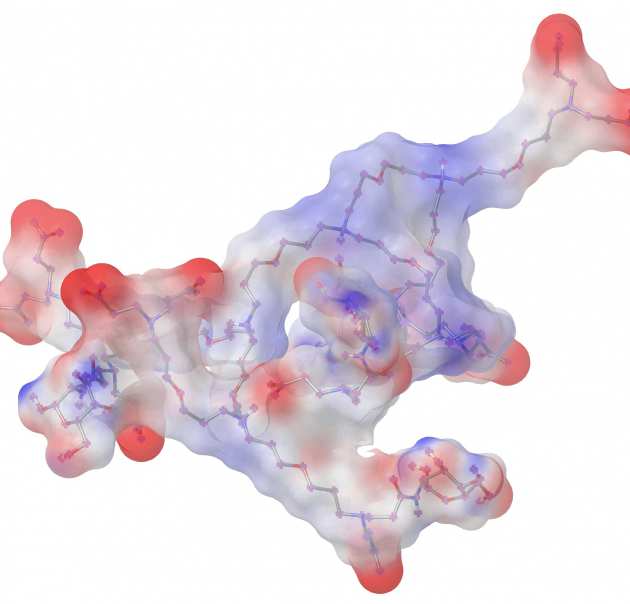 In this edition: A new strategy for treating bacterial infections and a Paralympian’s advice for students designing sporting equip ment.
In this edition: A new strategy for treating bacterial infections and a Paralympian’s advice for students designing sporting equip ment.
Listen to the complete streamed podcast - 12 September 2012
Or listen to individual chapters
- News - How Imperial physicists hope to make accelerator science go faster and a new study provides insights into the spread of flu.
- A new strategy for treating infections - Professor Sunil Shaunak explains how controlling excessive immune responses could reduce deaths from bacterial infections.
- Students find Slovenia’s longest cave - Members of the Imperial College Caving Club recount their memorable summer expedition.
- Autumn events at Imperial - Katie Weeks looks ahead to some upcoming public events at Imperial.
- Sarah Storey on technology in sport - The Paralympic cyclist offers advice to students taking part in the Rio Tinto Sports Innovation Challenge.
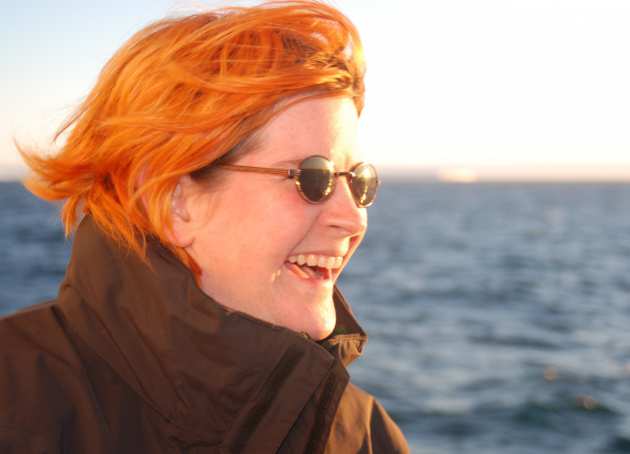 In this edition: A glimpse of tropical ancient Antarctica and the science of manipulating light waves.
In this edition: A glimpse of tropical ancient Antarctica and the science of manipulating light waves.
Listen to the complete streamed podcast - 22 August 2012
Or listen to individual chapters
- Research news - Why the maser might no longer be the cold, awkward cousin of the laser, and how karate experts’ brains help them to punch harder.
- The Global Health Policy Summit - Thinkers from around the world gathered in London to discuss new solutions to the world’s biggest health challenges at a summit co-hosted by Imperial.
- Reconstructing Antarctica’s ancient history - Fifty million years ago, the continent we know as icy and inhospitable basked in a warm subtropical climate, explains Dr Tina van de Flierdt.
- Tricks of the light - Professor Sir John Pendry assesses recent developments in the field of transformation optics – the science behind invisibility cloaks.
- Travails of a triathlete - Our reporter catches up with Australian Olympian Emma Moffatt during her stay at Imperial as she prepares to compete in the London 2012 Games.
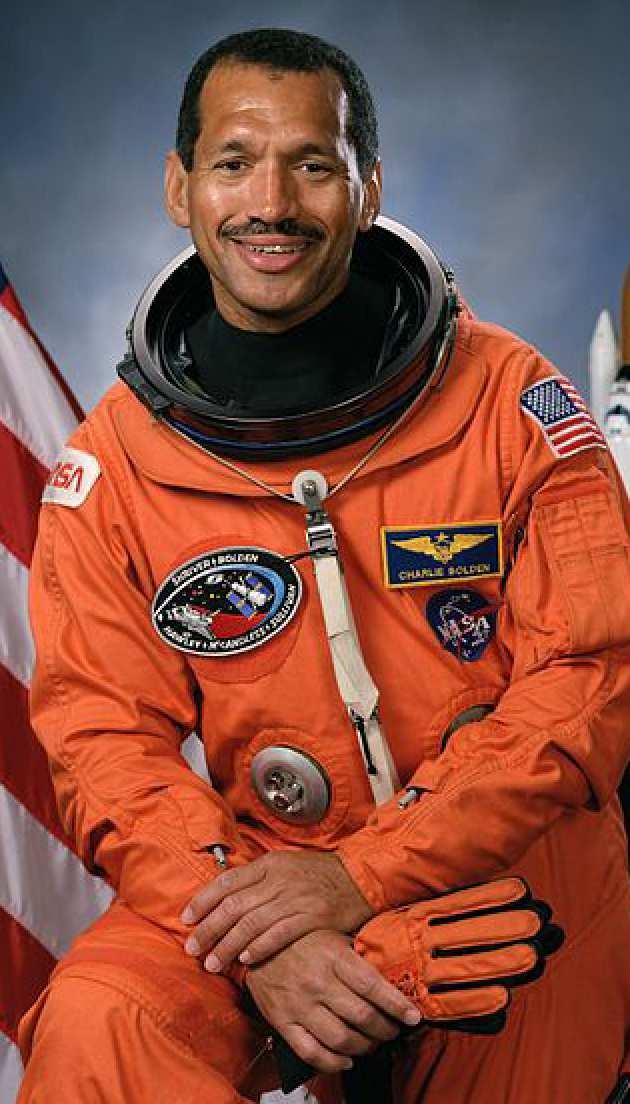 In this edition: A Boris Bike scheme but for cars, what it means to be an Imperial alumnus and the Head of NASA.
In this edition: A Boris Bike scheme but for cars, what it means to be an Imperial alumnus and the Head of NASA.
Listen to the complete streamed podcast - 1 August 2012
Or listen to individual chapters
- News roundup - New member Kerry Noble joins the pod squad to discuss Royal Academy of Engineering fellowships, an upcoming Channel 4 programme on MDMA and a new research centre for bacterial infections.
- To boldy go - Head of NASA and former astronaut, Charles Bolden, explains why getting children inspired to study science is so important and addresses the question of life on other planets.
- Alumni memories - Guests at receptions in Beijing and Shanghai share their experiences as alumni of Imperial.
- Boris bangers - Scott Le Vine from the Centre for Transport Studies suggests that London could benefit from a shared car scheme similar to the Barclays cycle hire.
 In this edition: Imperial scientists celebrate Cern’s big discovery and composers create the soundtrack for a walk around campus.
In this edition: Imperial scientists celebrate Cern’s big discovery and composers create the soundtrack for a walk around campus.
Listen to the complete streamed podcast - 11 July 2012
Or listen to individual chapters
- News: Bosons, stem cells and nutrition - Behind the headlines about the particle that could be Higgs, an important development in stem cell science, and tracking global progress against child hunger.
- Polio’s last stand - A new study by Professor Nick Grassly evaluates the impact of new vaccines on efforts to eradicate polio in Afghanistan and Pakistan.
- Telescope tales - Dave Clements speaks about his involvement in the Royal Society Summer Science Exhibition, where he enthused visitors about the Herschel Space Observatory.
- Business School research celebrated - How Business School research is facilitating innovation in megaprojects, moving remote health into the mainstream, and improving integration of data in cities.
- Proms Music Walk - Locations on the South Kensington Campus provide the inspiration for specially composed music to mark John Cage’s centenary.
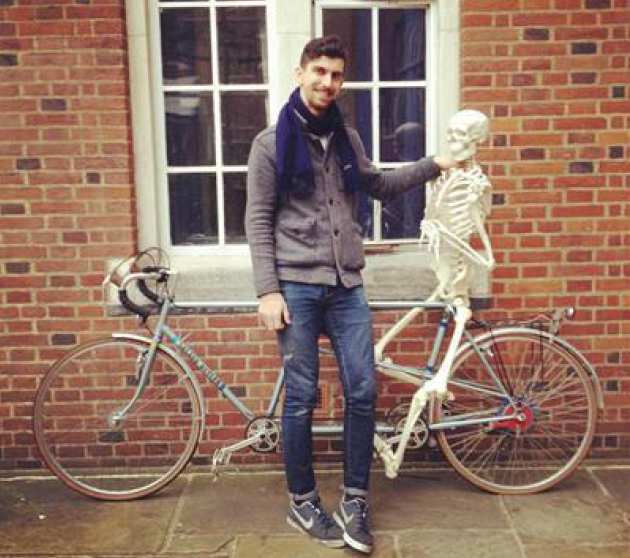 In this edition, Darwinian ditties emerge from natural selection and a student gets saddled with a skeleton.
In this edition, Darwinian ditties emerge from natural selection and a student gets saddled with a skeleton.
Listen to the complete streamed podcast - 20 June 2012
Or listen to individual chapters
- The descent of music - An experiment by Imperial scientists has shown that music can evolve by means akin to Darwinian natural selection.
- Ground broken at new medical school - Construction begins at the Lee Kong Chian School of Medicine in Singapore, a new institution established jointly by Imperial College Lond on and Nanyang Technological University.
- Tuberculosis: models and medicines - A medical researcher and a biomathematician discuss how mathematical models can help tackle TB in HIV-prevalent regions.
- Tweet dreams - Bruce Daisley, UK Sales Director for Twitter, offers advice to students hoping to work for big online companies.
- Bone ranger - Physics student Kadhim Shubber (above) aims to cycle from John O’Groats to Land’s End on a tandem bicycle with a skeleton to raise money for the Rector’s Scholarship Fund.
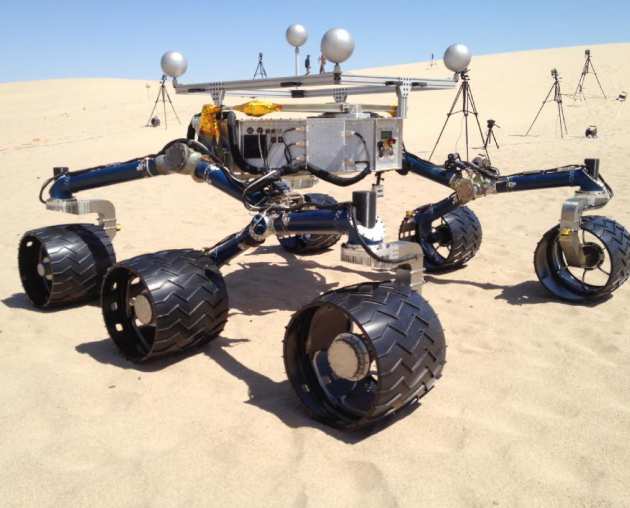 In this edition, find out what Nasa’s next Mars rover is looking for and what working with artists can tell scientists about their research.
In this edition, find out what Nasa’s next Mars rover is looking for and what working with artists can tell scientists about their research.
Listen to the complete streamed podcast - 30 May 2012
Or listen to individual chapters
- News roundup - Shrinking soil mites, ultra-sensitive diagnostic tests and a major new research facility opens on campus.
- Rover’s return - Professor Sanjeev Gupta, part of the scientif ic team for Nasa’s next Mars mission, explains what he hopes to discover with t he big ges t rover yet (above).
- Beautiful Science - Imperial scientists explain how their research has been inspiring artists.
- Festival spirit - Visitors to Imperial’s first public festival tell us what fascinated them about the event.
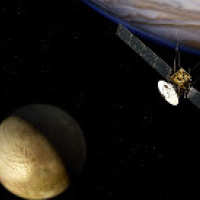 In this edition, we find out how bad badgers in the media affect the way that diseased animals are treated and hear why champagne corks are popping all around the College.
In this edition, we find out how bad badgers in the media affect the way that diseased animals are treated and hear why champagne corks are popping all around the College.
Listen to the complete streamed podcast - 9 May 2012
Or listen to individual chapters
- News roundup - Royal Society appointments for Imperial scientists, the announcement of a new mission to Jupiter and a study into the diagnosis of breast cancer.
- Celebrating Sanka day - Simon Watts talks to lo cal children visiting Imperial as part of Sanka day, celebrating the College's Japanese connections ahead of the London 2012 Olympic games.
- Caricaturing Britain's badgers - Gareth Mitchell interviews Dr Angela Cassidy about how cultural depiction of badgers can change ideas about culling the animals when they spread diseases like Bovine TB.
- Research supporting Paralympians- J-P Jones meets Dr Dominic Southgate, Project Manager for the Rio Tinto Sport Innovation Challenge project which features in Universities Week 2012.
 In this edition, an update on strategies to prevent malaria transmission, and a visit to the new carbon capture pilot plant opening on campus.
In this edition, an update on strategies to prevent malaria transmission, and a visit to the new carbon capture pilot plant opening on campus.
Listen to the complete streamed podcast - 18 April 2012
Or listen to individual chapters
- News roundup - A warning of the threat to ecosystems and food security from fungal diseases, and a look forward to the Imperial Festival.
- Biting back against malaria - Professor George Christophides and Dr Tony Nolan discuss their efforts to prevent mosquitoes from spreading malaria.
- Imperial pil ots carbon capture - Colin Smith goes behind the scenes at the new carbon capture facility on campus (above), where students will be trained in advanced technologies.
- School pupils plan Mercury colonies - Fiona Larner reports from the International Space Settlement Design Competition held at Imperial.
- Varsity Rugby 2012 - Simon Watts reports from this year’s clash between Imperial College and Imperial Medicals at the Twickenham Stoop Stadium.
 In this edition, a librarian ponders the future of academic publishing, and a mathematician suggests that patterns we see in data might not be as helpful as we think.
In this edition, a librarian ponders the future of academic publishing, and a mathematician suggests that patterns we see in data might not be as helpful as we think.
Listen to the complete streamed podcast - 21 March 2012
Or listen to individual chapters
- News roundup - Biological machine components made by yeast, generating energy from human waste, and gene therapy for cystic fibrosis.
- Academic publishing: is there a better way? - Debbie Shorley, Director of Library Services, questions whether it's right for universities to spend large sums on journal subscriptions.
- Fight the power laws - We’re very good at spotting patterns in data, but applying simple mathematical models isn’t always useful, argues Professor Michael Stumpf.
- TEDx at Imperial: the elevator pitch - Gilead Amit, part of the student team behind Imperial&rsqu o;s first TEDx event , is challenged to champion the series of inspirational talks.
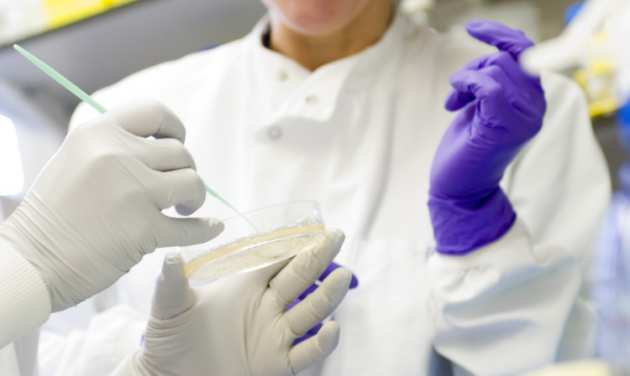 In this edition, we discover why neutrinos appeared to be in such a hurry and hear why virus scientists want to publish details of how to create more transmissible strains of bird flu.
In this edition, we discover why neutrinos appeared to be in such a hurry and hear why virus scientists want to publish details of how to create more transmissible strains of bird flu.
Listen to the complete streamed podcast - 29 February 2012
Or listen to individual chapters
- Old antibiotic could help fight TB - An Imperial study has found that doxycycline prevents lung destruction caused by tuberculosis bacteria.
- Neutrinos: not so fast - Faulty wiring appears to be responsible for an apparent violation of the universe’s speed limit observed by scientists in Italy last year.
- Do we need th e leap se cond? - Tom Whyntie discusses whether our clocks should be tethered to the rotation of the Earth.
- Bird flu studies must be published – Wendy Barclay - Controversial research into transmissible strains of H5N1 influenza should not be censored, argues the Professor of Virology.
- The truth about wind power- We need a more informed public debate on renewable energy, says Dr Robert Gross.
 Researchers enlist schoolchildren to measure pollution, a prize-winning essay writer shares his tips, and two experts offer contrasting views on whether Mars’s surface could have harboured life.
Researchers enlist schoolchildren to measure pollution, a prize-winning essay writer shares his tips, and two experts offer contrasting views on whether Mars’s surface could have harboured life.
Listen to the complete streamed podcast - 8 February 2012
Or listen to individual chapters
- Schoolchildren get involved in pollution research - Dr Mark Richards (above) explains how pupils in Brighton are helping Imperial scientist s mo nitor air pollution around their schools.
- News: Black holes and revelations - Brain scans illuminate the effects of magic mushrooms, black holes reveal surprising life-giving qualities and how the body clock could be linked to diabetes.
- Why care about discovering the Higgs boson? - 2011 Science Challenge winner Andrew Purcell reads from his essay and offers advice to this year’s entrants.
- Is there life on Mars? - Dr Tom Pike explains why his data cast doubt on the possibility of life having existed on the Martian surface, but Professor Mark Sephton hasn’t given up the search.
- Exhibition Road completes its transformation - Perspectives on the new-look street design from mayor Boris Johnson, Professor Mike Bell and other road users.
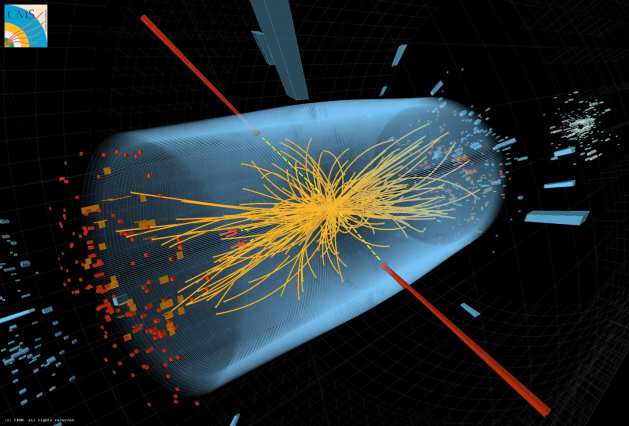 What secrets will the Large Hadron Collider reveal in 2012? Our latest podcast looks at the year ahead for Cern, plus turning wrapping paper into biofuel, using art to treat mental health problems, and diagnosing traumatic brain injury.
What secrets will the Large Hadron Collider reveal in 2012? Our latest podcast looks at the year ahead for Cern, plus turning wrapping paper into biofuel, using art to treat mental health problems, and diagnosing traumatic brain injury.
Listen to the complete streamed podcast - 18 January 2012
Or listen to individual chapters
- 2012: the year of the Higgs boson? Last year ended with promising results from the Large Hadron Collider, but Professor Jordan Nash is keeping the champagne on ice.
- News roundup - How pike relocation is threatening native species in Italy and a new look at how effective weight loss surgery is as a treatment for type 2 diabetes.
- Turning waste paper into biofuel - Unwanted Christmas cards and wrapping paper could provide enough energy to send a bus to the moon more than 20 times, according to Imperial researchers.
- My Life On Mars - Michael Crawford, Professor of Mental Health Research, considers what he would take with him on a lone voyage to the Red Planet.
- Brain probes to assess traumatic injury - Professor Martyn Boutelle from the Department of Bioengineering on new technology for assessing the severity of traumatic brain injury.

